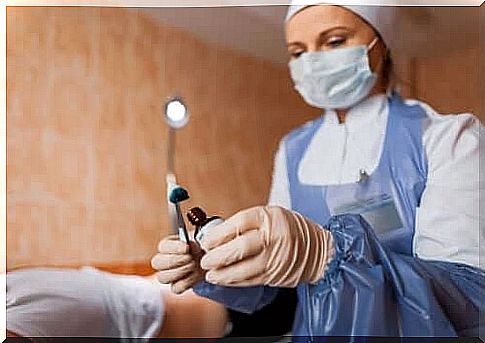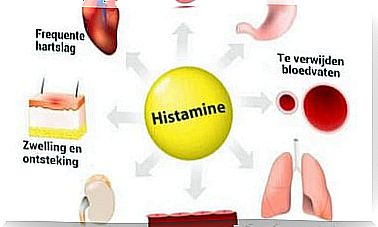How To Treat An Inflamed Wound

At some point in our lives we will all have to deal with an inflamed wound and you will want to know how to treat it. By not paying proper attention and cleaning it properly, bacteria can prevent the wound from healing while increasing the risk of scarring and other complications.
While an inflamed wound is common, we still need to be very careful. This depends on the bacteria that infected the wound, which can be life-threatening for the patient. For example, bacteria that cause tetanus can cause serious medical complications for the patient.
Today we will teach you how to treat an inflamed wound by following these simple, yet essential steps. This will allow the wound to heal and prevent it from getting worse. Let’s see what they are.
Steps for Treating an Inflamed Wound
Treating an inflamed wound is easy, all you need to do is follow some simple steps that will prevent bacteria from manifesting. People with weak immune systems should take extra precautions.
Especially patients suffering from immunosuppressive, infectious or diabetic diseases (Spanish link). This is because they are more likely to develop an inflamed wound. They should therefore follow the steps below as soon as possible.
Cleaning the wound

Cleaning the wound removes traces of dirt that could be the cause of possible infections. To treat the inflamed wound, you must first clean it. The best way to do this is to use soap and water. Depending on the type of wound, you should always be careful not to damage the wound further.
If the wound is not serious, you can use cotton wool to clean it, as they will not stick to the wound. Otherwise, it is better to use a gauze.
Try not to abrade the wound with the gauze or cotton wool. The best way to use these materials is to gently dab them on the wound.
Correct treatment

Using a disinfectant can prevent the spread of infection in wounds. Even if you have cleaned the wound with soap and water, that is not enough. To treat an inflamed wound, it is important to choose the right treatment.
A professional at a local pharmacy or medical center will help you decide which solution is best for you. However, below are some treatments that can be used:
- Antibiotic ointment: works against bacteria that infect the skin. Always clean the wound with soap and water before applying the ointment. This treatment is especially for dry wounds.
- Antiseptics: Using a disinfectant such as Betadine® (povidone-iodine) or chlorhexidine will eradicate the infection and the wound will then heal much faster. Keep in mind that body fluids counteract povidone. The best option for a recent open wound is to use chlorhexidine.
- Dressing: Dressing helps protect the wound and prevents the infection from coming back. However, if it sticks to the wound, then it is better to let it breathe. Of course with retention of the above care.
We should always wash our hands before treating a wound, whether we use cotton wool or not. This prevents bacteria from making contact.
Antibiotics
If the infection in the wound is severe, you should see a doctor for treatment. You should see a doctor if the following symptoms occur near the wound:
- There is a yellow discharge.
- If the wound has changed color.
- If there is swelling.
- When the pain increases.
- If a fever occurs.
The doctor will likely prescribe oral antibiotics to fight the bacteria more effectively. Nevertheless, continue with the above steps to support the treatment.
Preventing infections
The best way to avoid dealing with an inflamed wound is to prevent it from becoming inflamed in the first place. To do this, you need to clean it as soon as possible to remove any dust, dirt, or anything else that could cause inflammation.
After that, let it breathe for about 24 hours and cover it with gauze to protect it. Treatment with hydrogen peroxide and Betadine® is a very effective way to speed up the healing process. If you follow these recommendations, you can prevent a wound from becoming inflamed.
Do you often suffer from inflamed wounds? If so, we recommend that you put the above advice into practice and get a blood test to check the strength of your immune system.








